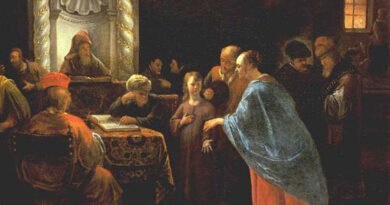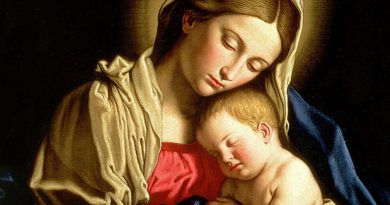Why Did Jesus Washed His Disciples’ Feet? : Biblical Law Must Be Acted Out of Love, And Love Acted Out of Biblical law
In the Old Testament (Exd 30:19-21) the Lord instructs Moses to place a bronze laver basin with water to be put between the meeting tent and the altar for His Dwelling place, also known as the “Tabernacle”. This is to be used for the priests to ritualistically wash their hands and feet before entering the meeting tent. Likewise, when they approach the altar in their ministry to offer an oblation to the Lord. This purification ritual is commanded by God himself. If they do not follow this command, they will die. Perhaps, their worldly impurity is not fit to be in the presence of God. This command is a perpetual ordinance for them and their priestly descendants throughout their generations. Washing their hands and feet prepared the priests for God’s presence in His Dwelling and made sure they lived to see another day.
When the Tabernacle was first erected, Moses was the one who first washed Aaron and his son’s hands and feet as commanded by God to him. Acting out of service but also with love, he did this before anointing Aaron t become God’s priest. It is then seen in (Exd 40:30-32) that Moses, Aaron, and his sons strictly practiced this command.
Purity: The priestly obligation before offering oblations at the altar
Now in the New Testament, we see in (John 13:5), Jesus washes his apostles’ feet. This takes place in the Last Supper on Thursday night, before Friday – the 1st day of the Passover. This washing of the feet signifies the priesthood of the Twelve Apostles, the beginning of their priestly ministry in God’s new Dwelling place, the Church. But unbeknownst to the twelve, they were actually participating in a ritualistic purification that ties back to the washing of hands and feet of priests in the Old Testament Dwelling. And because in this last supper where Jesus offers his flesh and blood in the form of bread and wine as an oblation, and the table at which he reclined at is his altar, Jesus and his priests are obligated to do the same.
Peter at first declined this gesture from Jesus. He didn’t understand what was happening and he saw it unfitting for his Master to do such service for him. But Jesus tells him “Unless I wash you, you will have no inheritance with me.” This prompts Peter to tell Jesus to not just wash his feet, but also his hands and head.
But why didn’t Jesus wash their hands if it is also part of the purification ritual? The simple answer is that his disciples already bathed. It was actually common for Jews to clean up themselves, their homes, pray and offer sacrifices, and bathe to wash their entire bodies before the Passover. A kind of pre-Passover purification preparation as done by many in (John 11:55). On (John 13:10) Jesus said to Peter “Whoever has bathed has no need except to have his feet washed, for he is clean all over. So you are clean, but not all.”
Perhaps Jesus’ disciples’ feet were the only unclean part of their bodies since they had to walk to that “upper room” from wherever they came from. Dirt and debris might have latched on to their feet. So it was the only part of their bodies that had to be recleaned before they continue or complete the supper.
Judas: The “Unclean” one
Our purity is an absolute necessity in the Lord’s Dwelling, otherwise we would die. In (John 13:11), Jesus knew not all his disciples were clean as he says “Not all of you are clean.” He was referring to Judas Iscariot, the disciple who would betray him.
One thing can be attributed to the uncleanliness of Judas was his plotting with the chief priests to hand Jesus over to them. This conspiracy happened when everybody else were faithfully preparing for the Passover (Mark 14.10,11; Luke 22.3-6). Even if Jesus has washed his feet, perhaps his hands were not clean nor has he gone through any pre-Passover purification. His uncleanliness was enough for the devil to induce him (John13:2) and for Satan to enter him (John 13:27).
For his lack of cleanliness in the Lord’s Dwelling, he would “die”.
Mandate of Love and Service
Jesus lays out a mandate for his followers, especially to his priests—a call to emulate his humility, compassion, and selflessness. By performing the task of a servant, Jesus demonstrates that true leadership is not found in power or authority but in service to others. He teaches that love is not merely a sentiment but a tangible action, often expressed through humble acts of kindness and compassion.
Moreover, Jesus’ act of washing his disciples’ feet also underscores the universality of his love and not just an action of following the rules. He does not exempt anyone from this gesture, even Judas Iscariot, who would soon betray him.
For those called to serve as his priests and ministers, Jesus’ example holds particular significance. In the Catholic tradition, priests are entrusted with the spiritual care of their congregations, charged with leading, guiding, and nurturing them in faith. Yet, Jesus reminds them that true spiritual leadership requires more than just following the Biblical laws — it demands a willingness to stoop down and serve, to meet people in their moments of need, and to walk alongside them with humility and compassion.
Biblical law must be acted out of love, and love acted out of Biblical law.




